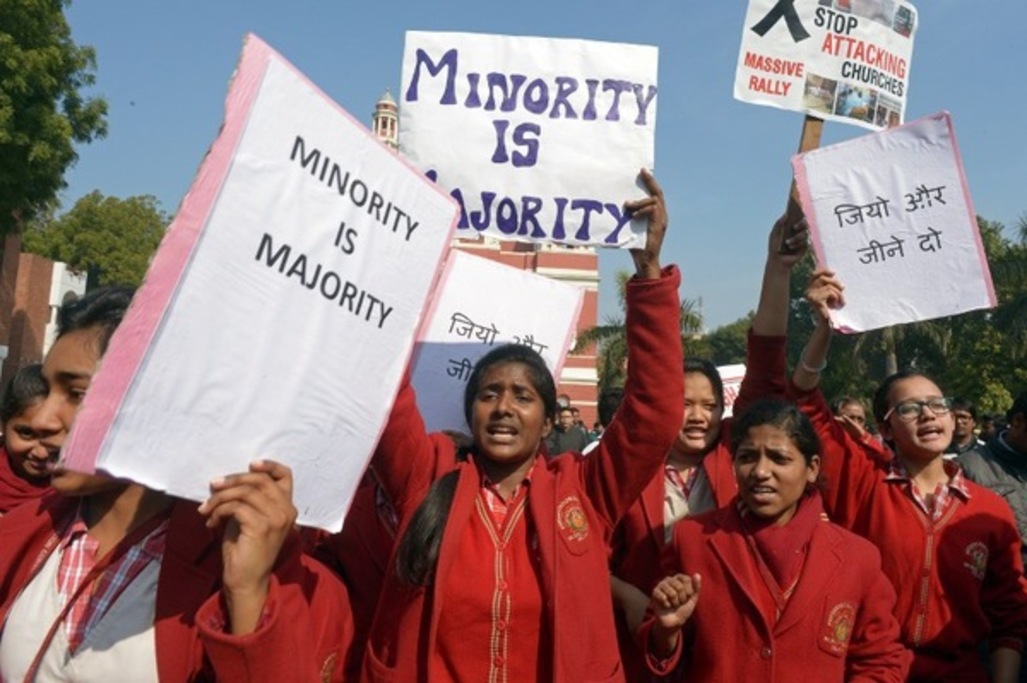The obscurity of Minority Affairs in India
Equal opportunities and a dignified acceptance are probably the most critical demands of the minority groups in India. Some of the schemes rolled out by the Indian government deserve applause while large scale negligence remains prominent.
While India, with its diverse population and a plethora of intricate issues related to the marginalised sections, tries to rake up the signs of equality, the government is looking carefully at the draft on Equal Opportunity Commission (EOC). The draft is based on the Expert Group Report and is re-circulated for inter-ministerial consultations. The report by the Expert Group explores recommendations to examine and determine the structure and the functions of an EOC to address the grievances of deprived groups.
The Minister of State (Independent Charge) for the Minorities Affairs, Mukhtar Abbas Naqvi, in a statement in Lok Sabha, said that his ministry has taken initiatives for educational empowerment, infrastructure development, skill development, economic empowerment, women empowerment and also to meet the special needs of the minorities.
Schemes that uplift the communities
In his statement, Naqvi revealed that the Ministry of Minority Affairs is implementing three specific schemes for the welfare of minority women under ‘Nai Roshni’ for Leadership Development of Minority Women, especially for development of women belonging to notified minority communities, namely Muslims, Christians, Sikhs, Buddhists, Parsis and Jains. INR 141.3 million have been released and 69,150 women have been covered till January 31 in the current financial year. The aim of the scheme is to empower and instil confidence in women by providing knowledge, tool and techniques for interacting with government system and others at all levels. The scheme is implemented through selected Non-Governmental Organisations (NGOs) all over the country.
Begum Hazrat Mahal National Scholarship for Meritorious Girls belonging to minorities is implemented through Maulana Azad Education Foundation. Under the scheme, INR 5.76 million was released and 48,000 girls were covered in 2015-16, while INR 5.45 million was released and 45,426 girls were covered in 2014-15.
Mahila Samridhi Yojana is implemented through National Minorities Development & Finance Corporation (NMDFC) wherein skill development training is imparted to groups of women in women friendly trades. The training period is of maximum six months and raw material cost up to INR 1,500 per trainee and stipend of INR 1,000 per trainee is provided. During the period of training, the women are encouraged to form Self Help Groups, followed by infusion of micro-credit funds of maximum INR 100,000 per member for the purpose of using the skill developed during the training, for income generation activities.
Challenges galore
While the minister introduced initiatives to uplift the minority groups in the country, India’s National Commission for Minorities has virtually no members left at present. The last of its members retired on March 16 and the government has so far not finalised names of the new Chairperson and members. The NCM is a seven-member board including a chairperson, with each member having a fixed tenure of three years. The last member who retired this Thursday was Dadi E Mistry. The government remained sloppy in replacing the outgoing members over the last year and even after repeated written reminders by the last Chairman, Naseem Ahmed, there was not much that happened. Ahmed vacated his position on March 3.
Amid announcements of schemes that would address the enraged minorities in the country, the government must take issues such as these more seriously and allow the NCM to function independently. The NCM was formed after a Home Ministry Resolution was passed on January 18, 1978, that explicitly mentioned that this body is important because ‘despite the safeguards provided in the Constitution and the laws in force, there persists among the minorities a feeling of inequality and discrimination.’










